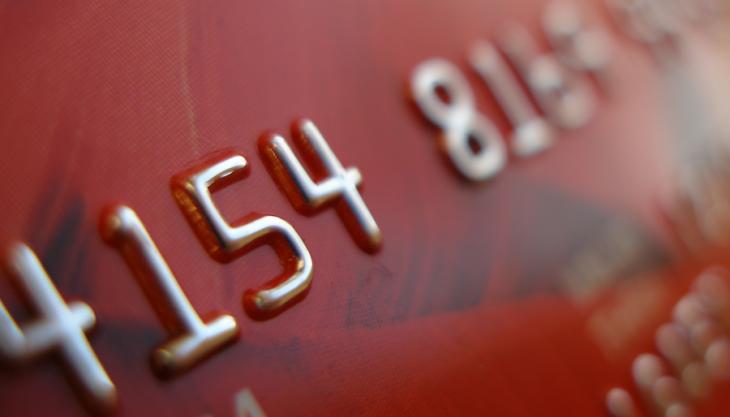5 Credit Card Rules to Live By
Submitted by Rachel R on Fri, 02/21/2014 - 1:35pm

Good credit card habits are worth their weight in gold
Credit cards are great to have when you need them. Renting a car is nearly impossible without one and when you're traveling, it can be safer to use plastic than to carry a lot of cash along. But when you use credit cards to buy things you can't afford or to pay for necessities, that's a bad habit. Often, when you are just starting out, you'll be flooded with credit card offers and it's tempting to accept them. But just because you get a card invitation, doesn't mean you should accept it. The best offers have no (or low) annual fees, low interest rates and no set up fees. And once you have your plastic in hand, there are some hard and fast rules you should obey to keep yourself out of financial trouble.
#1 Don't Buy It If You Couldn't Pay Cash for It
Sometimes there is a good reason to purchase something using a credit card rather than a debit card or cash. For instance, if your card offers an extended warranty or replacement program for items purchased, you may want to use your card to buy your laptop or TV. But if you don't have the cash to buy the item, you shouldn't buy it on plastic either. If you're using your credit card to rack up air miles or reward points, that's okay too, but only if you aren't spending beyond your limits.
#2 Pay Your Balance in Full Each Month
This relates back to #1. You should pay your card balances off in full each and every month like clockwork. If you do, you won't accumulate interest charges or get in over your head if you don't let balances accrue. It can be easy to swipe, swipe, swipe your credit card and not keep track of how much debt you're amassing. You should keep an eye on your balances, don't overspend and don't ever charge more than you can pay back when the payment comes due.
#3 Don't Ever Pay Late
This is critically important for a couple of reasons. First, if you pay late, you'll incur a late fee – these can range from $25-$50 dollars - and these are just money down the drain. Second, if you pay late, that means you're beyond the grace period and you'll accrue interest. Third, and very importantly, somewhere buried in your terms and conditions is a clause that says if you pay late, the credit card issuer can hike your interest rate. Between the late fees and increased interest costs, this is a slippery slope downhill to debt.
#4 Don't Pay Just the Minimum Payment
If you do allow a balance to accumulate and can't pay it in full in a given month, that's not great, but you should pay as much as you can and get the balance paid off as soon as possible. One of the worst things you can do is to pay only the minimum payment. Often, this amount will not even cover the interest owed. From there, unpaid interest will compound and you'll be paying interest on interest and that can rapidly cause your balance to balloon out of control.
#5 Don't Max Out Your Cards
There are several reasons not to max out your credit cards. First, you'll likely struggle to pay it off. Second, you'll have tons of interest piling up. Third, your credit rating calculates the percentage of your revolving credit your are tapping into to create your score. If your cards are maxed out, your credit rating will take a hit. If you have a number of credit cards and they are all maxed out, this is a serious problem. Credit cards aren't free money – they should be treated no differently than cash in your wallet to stay out of financial peril.
If you're mired deeply in credit card debt, this can feel like an overwhelming problem. But, in fact, if this is your only source of debt, you may be able to negotiate settlements to pay down your balances. This will mean you have to cut up your plastic, but it's one way to get out of debt. But if you have other debts accumulating as well that you can't pay, such as medical bills, loans, overdue mortgage payments or delinquency on your car loan, a Chapter 7 or Chapter 13 bankruptcy may be a better option to extinguish your debt and get a financial fresh start. Call the law offices of John T Orcutt today for a free consultation on your debt circumstances.
Debts Hurt! Got debt? Need help? Get started below!
Serving All of North Carolina
- Bankruptcy Attorneys Raleigh NC (North)
- Bankruptcy Attorney Fayetteville NC
- Bankruptcy Attorney Durham NC
- Bankruptcy Attorneys Wilson NC
- Bankruptcy Attorneys Greensboro NC
- Bankruptcy Attorneys Southport NC
- Bankruptcy Attorneys Wilmington NC
Bankruptcy Attorneys Raleigh NC (North)
6616 Six Forks Rd #203 Raleigh, NC 27615 North Carolina
Tel: (919) 847-9750

Bankruptcy Attorney Fayetteville NC
2711 Breezewood Ave Fayetteville, NC 28303 North Carolina
Tel: (910) 323-2972

Bankruptcy Attorney Durham NC
1738 Hillandale Rd Suite D Durham, NC 27705 North Carolina
Tel: (919) 286-1695


Bankruptcy Attorneys Greensboro NC
2100 W Cornwallis Dr. STE O Greensboro, NC 27408 North Carolina
Tel: (336) 542-5993

Bankruptcy Attorneys Southport NC
116 N Howe St. Suite A Southport, NC 28461 North Carolina
Tel: (910) 218-8682

Bankruptcy Attorneys Wilmington NC
116 N. Howe Street, Suite A Southport, NC 28461 North Carolina
Tel: (910) 447-2987
